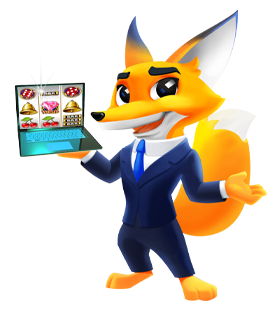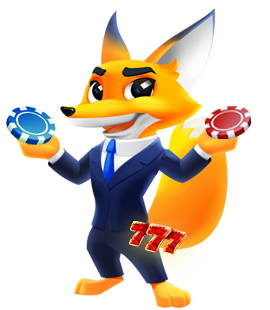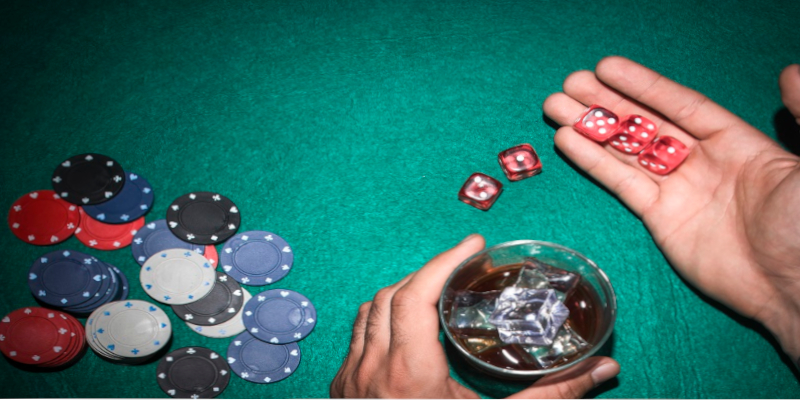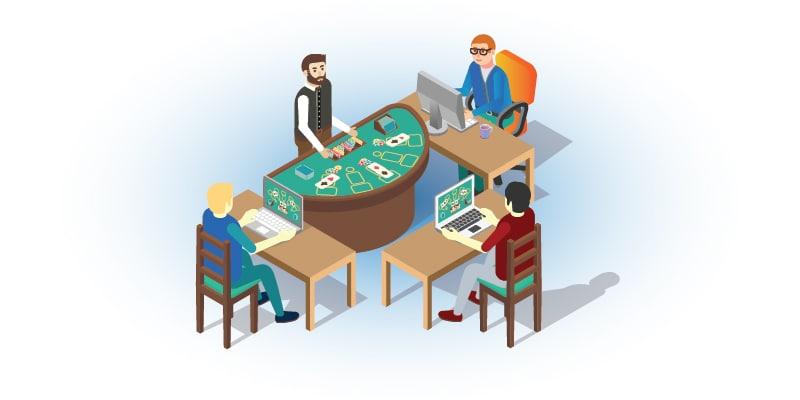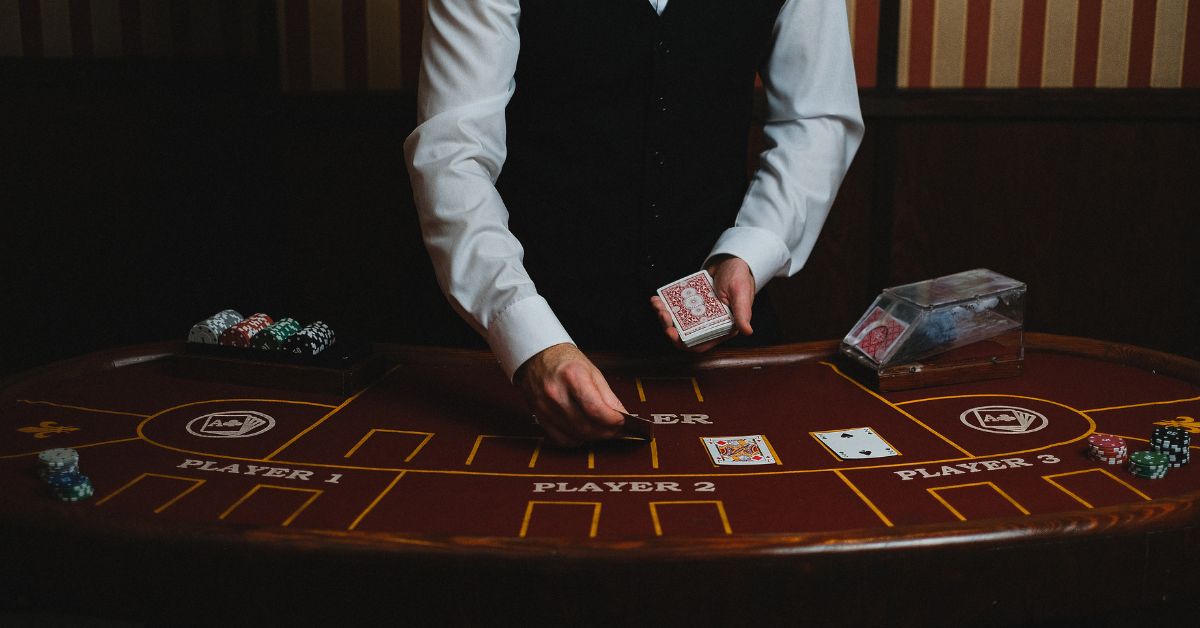The Psychology of Folding in Poker: Why and When to Fold?
Folding in poker is not about fear or weakness. It’s a smart move that helps players protect their chips and play the long game.. Let's analyze the psychology of folding in poker to gain a more objective view, fold at the right time, control your emotions, and make the right decision.
Common Psychology When Players Fold
Folding in poker shows how players handle emotions and plan their moves. Folding often causes discomfort, making many players feel defeated and inferior. However, knowing when to fold is a smart, long-term strategy that not everyone can master.
Some notable analyses of the psychology of folding in poker:
Fear Of Losing
This is a common mentality of many new or inexperienced players. They often lack confidence in themselves, fear that their opponents have strong cards, and quickly give up to preserve their safety. Of course, new players often lack confidence and fear that their opponents have better cards. They fold too quickly to stay safe, but this also means missing chances to win.
Skilled players may bluff to make you fold. When you realize their cards were weaker, regret and self-doubt often follow.

For example, you have Ace-Queen offsuit (A♠ Q♦) in early position.
The flop comes: Q♣ 7♠ 3♦
You raise preflop, and only one player calls. With this hand, you have a good kicker. You start with half your bet. But your opponent is an aggressive, tight player and has tripled your bet.
With this hand, you have a good kicker. You start with half your bet. But your opponent is an aggressive, tight player and has tripled your bet.
Since your opponent seems aggressive, you start to worry: "What if he also has AQ? Or KQ? Could he be bluffing with J-T?"
You can't read the cards, but you still don't want to fold because you might be ahead.
You call the bet, and he calls a bigger bet. You start to get more scared, and you fold.
The fear of losing has caused you to fold a hand that you could have won.
Confused About Bluff - Actively Folding
Players often hesitate when they think their opponent is bluffing. Even with a good hand, they may lack confidence and fold unnecessarily.
Instead of focusing on the situation, players may overthink and doubt their decisions.
- "Is he bluffing? I can’t fold this hand."
- "Should I continue or fold?"
Actively folding cards is a way to avoid unnecessary troubles. Of course, this is also an overly cautious mentality aimed at protecting safety.
However, in many cases, it will help you protect your chips and prevent you from being swept away by your opponent. This player may have gained experience and begun to understand how to read situations, recognize the opponent's emotions, and devise a deliberate strategy.
Pressure Mentality - Led By Opponents
Aggressive and experienced opponents can pressure new players into folding, even when they have strong hands.
These players often have weak psychology and are easy to read, leading to opponents taking advantage of the opportunity to overwhelm them. Therefore, you need to learn how to manage your emotions, psychology, and eyes when playing poker so as not to be led by your opponent.
Confident Mentality - Stop Moving Forward
Folding is not about fear; it’s a strategy. Experienced players see folding as a step back to prepare for the long game and protect their chips.
This player knows how to calculate whether his hand position is profitable or not, as well as how to grasp the opponent to decide to fold at the right time.
Their mentality is steady and stable
“I am not here to prove anything but to make the right decisions.”
“Poker is a long-term plan and knowing when to fold, not rushing. “

Self-Doubt Mentality After Folding
Many people struggle with folding cards correctly, often being bluffed by opponents and falling into traps.
They start to doubt themselves: should they "Call or Hold?"
“Is this time wrong or not?”
They are mainly being led and losing confidence in themselves after many losses. Unstable mentality, easily carried away, leading to incorrect decisions.
When Should You Fold In Poker?
“Knowing when to fold is an art in poker.
Folding doesn't always mean losing.
And when should players fold?”
Folding in poker is a crucial skill that enables players to protect their capital and optimize long-term profits. The cases where players should fold are analyzed based on strategy and psychology:
Starting Hand is Too Weak
If your starting hand is weak, like 7♦ 2♣ or 9♠ 4♥, it’s better to fold. These hands have little chance of forming strong combinations, especially in competitive games.
For example, if you’re in the Big Blind position and no one has raised, folding these hands can save you from unnecessary risks.
Facing a Strong Opponent and You Are at a Disadvantage
If you have a weak or average hand and are in the early position with little information to evaluate.
Your opponent has a strong mentality and a professional playing style. Since your hand is not good, the risk of getting a strong hand is high. Additionally, the opponent is an experienced player who can put you in a costly and challenging position. In this situation, folding is not a weakness but a wise strategy.
Be cautious and avoid unnecessary risks.

When You Suspect Your Opponent Has a Powerful Hand
If your opponent’s actions (like going all-in) suggest they have a strong hand, it’s often better to fold, even if you’re holding a high pair.
For example:
Your hand: (A♠ 10♠)
Position: You’re on the button.
Flop: A♦ 7♥ 4♣
You have a top hand of A, which is a good pair.
Your opponent plays quite aggressively, betting 70% of the bet, and you call.
Turn: K♣
Now the board is A♦, 7♥, 4♣, K♣.
The player bets 90% of the bet again. At this point, you begin to suspect that the player has a strong hand. Their strategy is to play big on 2 streets and not be afraid of the King. Therefore, their range can be very strong, such as AA, AK, KK, AQ.
If so, your hand (A♠ 10♠) can be overwhelmed.
At this point, deciding to fold is a smart choice to reduce risk.
When You Bluff Too Much and Need to Distract
There are many cases where players call too much and are easily caught bluffing. The risk is that you will be forced to bet heavily by your opponent.
At this time, change, fold, and distract your opponent to alter the image.
Accept small losses to avoid big losses.
When You Make Decisions Based on Emotions and Follow Your Opponents
If you are on a losing streak or have just been bluffed, your feelings will be affected. Many players will now "Call" to recoup.
If your psychology is out of control and you are losing a lot - Quit to stabilize your emotions and preserve.
Pot Odds Are Bad
If you are low on chips and need to invest more chips to “call”. However, if your hand has no chance of winning (or a low chance), then you should hold.
For example, you are on the turn with 8♠ 9♠
Community hand J♦ 10♣ 2♠ Q♥
Your hand has 4 cards to make a straight (8♠, 9♠, J♦, 10♣, Q♥) and needs a K or 7 to complete the straight. Therefore, you have 8 outs (4 K + 4 7).
Your probability of winning is 8/46≈ 17.4%
Calculate the probability needed to win
- Current post: 1000 chips
- Opponent: 600 chips
Now you need to call 600 to win; the probability needed is 600/(1000+600) = 37.5%
Thus, the probability you have is only 17.4%, while the likelihood needed is 37.5%.
Pot odds are not enough to call; you should fold.
How To Practice Folding Skills - Winning Like A Professional In Poker?
Everyone wants to win in poker, but not every hand is worth playing. So, be a smart player and know when to fold.
Folding is an essential skill that separates amateurs from pros. It’s not just about bad cards - it’s about mastering the art of decision-making. Here are some practical ways to improve your folding skills and play like a professional:
Step 1: Review the history of the rounds - the times you wanted to fold but didn't
Analyze 5 hands that you felt
- You felt uncertain.
- You wanted to fold.
- You folded anyway.
Ask yourself:
- What did you learn from that fold?
- Why did you choose to fold?
- Will you fold again next time?
Analyzing the open and closed hands will help you identify flaws in your mentality and assess your opponents. At the same time, it will also give you experience and regain the confidence to fold at the right time.

Remember the Default Situations to Fold
A little tip is to create a table in your notebook or on a sticky note in your playing area of the default situations to fold, such as:
- Pre-flop junk (like 7♦ 2♣, J♣ 4♦, 9♠ 4♥...)
- When you are betting strongly and have only an average hand.
- When you have no draw on the flop/turn.
- When pot odds < winning probability.
Practice Calculating Pot Odds & Probability
The key for a professional poker player is to be able to predict and calculate the probability of winning based on the cards they are holding, the outs needed to win, and the Pot Odds. Then, compare to make a decision.
Control Your Emotions to Fold at the Right Time
Emotions can cloud your judgment, especially when you’re on a losing streak. Many new players make the mistake of calling too often, hoping to recover their losses. Instead, focus on making decisions based on logic and probability. Remember:
- “Don’t chase losses - folding is better than losing more.”
- “No regret - folding is part of the game.”
By staying calm and logical, you’ll make better decisions and avoid unnecessary risks."
Learn to observe and understand your opponent's psychology
Observe and remember/record your opponent's behavior with each bet. Pay attention to their behavior:
Are they consistent or unpredictable?
Do they play tight (only strong hands) or loose (many hands)?
After each game, review your observations and look for patterns. For example, if a player always raises with strong hands, you can fold confidently when they bet aggressively. Over time, this habit will help you read your opponents more effectively.

Bottom Line
Folding can feel frustrating but it’s a crucial part of winning in poker.
Folding in poker is not just about keeping your chips safe; it's also about employing long-term strategy and controlling your emotions to maximize your profits. Thinking ahead, controlling your emotions, and playing the long game. So, learn to control them and make decisions based on analysis, logic, and probability.
You don't have to win every hand. Fold - take a step back to take many steps forward.



